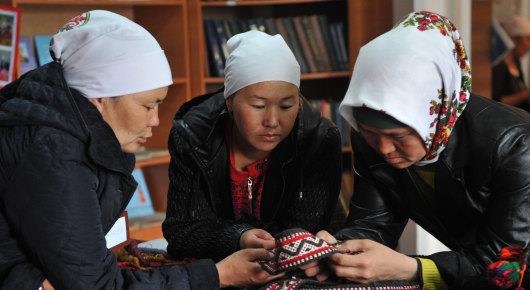FAO: Rural women can be agents of change in migration

Six out of ten international migrants reside in Asia and Europe, and a large share of them are from rural areas. Often, when these migrants settle into urban areas and find work, they send money back home to the families they’ve left behind.
The connections among migration, agriculture and the situation of rural women, inspected from the sustainable development narrative, are the topic of FAO’s main event during the Regional Forum on Sustainable Development in Geneva. The forum, happening 1-2 March, is organized by the United Nations Economic Commission for Europe (UNECE).
The panel discussion provides an opportunity to identify ideas and proven practices for creating better conditions and more resilient livelihoods in rural areas in the context of the sustainable development agenda.
Rural out-migration is often driven by poverty and unemployment. “Agriculture and rural development can address the main drivers of migration, such as rural poverty, food security, inequality, lack of employment opportunities or social protection, as well as depletion of natural resources,” said Vladimir Rakhmanin FAO Assistant Director-General and Regional Representative for Europe and Central Asia in his opening remarks. “All of them have a disproportionate impact on women.”
“Agriculture and rural development can address the main drivers of migration,
such as rural poverty, food security, inequality,
lack of employment opportunities or social protection,
as well as depletion of natural resources.”
Vladimir Rakhmanin
FAO Assistant Director-General and Regional Representative for Europe and Central Asia
Forty percent of international remittances sent by those who’ve found their way in urban locations end up in rural areas. These remittances can help women through improving their financial resources to feed the family and strengthen their decision-making and income-earning power.
However, for a long-term solution, investments should be made in food security and agriculture through gender-responsive policies that support small- and medium-scale agricultural enterprises.
“The 2030 Agenda for sustainable development is fully committed to gender mainstreaming,” Rakhmanin said. “A specific target under Sustainable Development Goal 5 foresees women’s equal access to economic resources and their full ownership and control over land – including agricultural land.”
FAO activities supporting women’s empowerment follow the same principle. These include programmes helping women from remote areas secure a more stable income through improving their craft skills.
The event is organized in cooperation with the International Organization for Migration (IOM), UN Women, and the UN Economic Commission for Europe. Speakers in the panel discussion include Tauhid Pasha from the International Organization for Migration, Saodat Olimova from the SHARQ Research Centre, Aleksandra Vladisavljevic from the Social Innovation Lab, Ibrahim Vurgun Kavlak from the Association for Solidarity with Asylum Seekers and Migrants, and Vladimir Korovkin from the SKOLKOVO Institute for Emerging Market Studies.
Later in the day, FAO will be represented at other events, too. Rakhmanin will be a panel member in a roundtable on the sustainable management of forests and ecosystems, and was involved in the organization of others.
1 March 2018, Geneva, Switzerland
